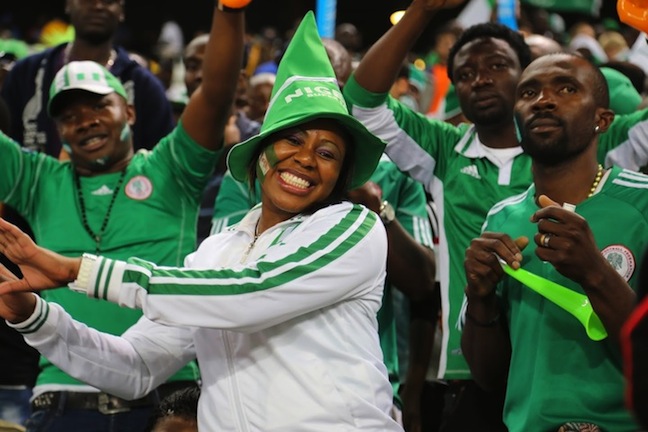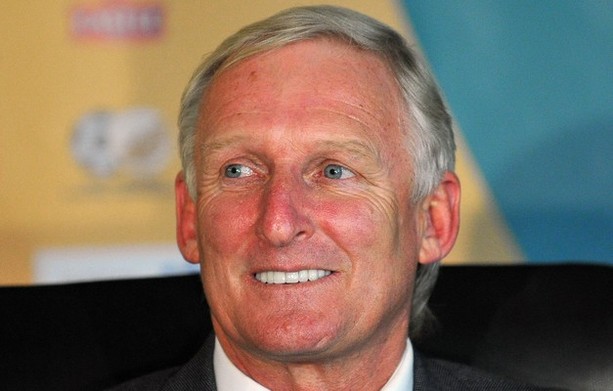Sport has gifted humankind with many unforgettable moments. “The Rumble in the Jungle” showed that tactical ingenuity, not only brawn had a place in boxing. Roger Milla dancing at a corner flag after yet another goal in the 1990 World Cup signaled African football’s arrival on the world stage. The drive and determination of Queen Serena’s reign will inspire many generations to come.
The 2016/17 PSL season in South Africa doesn’t usually make it on to the “greatest moments in sports” list. But perhaps it should. It gave us an unusual finalist for the 2017 FIFA goal of the year, also known as the Puskas Award.
Oscar Masuluke’s remarkable acrobatic overhead kick goal for Baroka FC against Orlando Pirates in an ABSA Premiership match was an act of pure athletic genius. The context in which it was scored underscores just how extraordinary it was. Baroka FC are relative newcomers to the PSL and hail from the backwaters of the Limpopo province, while Orlando Pirates are the fabled team from the big city.
2017 should have been a festive year for the legendary Pirates as the club celebrated its 80th birthday. It’s been a chequered eight decades of existence for The Mighty Bucs, punctuated by a pioneering spirit, legendary players, historic triumphs, and constant coaching changes. The great team of 1973, which swept all before them, was guided by two different coaches. When Pirates won the African Champions League in 1995, the hot seat was exchanged between Mike Makaab, Joe Frickleton, and the late Ronald Mkhandawire. The double- and treble-plundering sides of 2010/11 and 2011/12 had three different coaches steering the Buccaneers’ ship.
When Pirates faced Baroka on October 31, 2016, they were led by their 6th coach in six years. Pirates had taken the lead in the 48th minute through Justice Chabalala. As the game progressed, the Bucs seemed content to defend a one-goal lead.
Six minutes into stoppage time, Baroka won a corner kick and Masuluke, the lanky Boroka keeper, frantically sprinted forward for a last throw of the dice. Jackson Mabokgwane, the hapless Pirates keeper parried the ball away and it sailed over Masuluke’s head.
The danger seemingly cleared. But the football gods had other ideas. Masuluke executed a perfect bicycle kick, and the ball looped into the top right corner of the Pirates goal.
It was a moment of wonder that has eternally engraved its place in South African sports folklore. Goals like this are as common as Halley’s Comet, hence its nomination for the FIFA Puskas Award. In the end, Olivier Giroud’s “scorpion kick” goal for Arsenal denied Masuluke the honor of becoming the first goalkeeper to win the goal of the year award.
If sport is art, as CLR James famously wrote, then beauty is in the eye of the beholder.
Author: Mohlomi Maubane
Soweto-based writer and independent soccer researcher. His work has been published in the Mail and Guardian weekly newspaper and in Hype magazine. Has also done research and scriptwriting for several TV programs in South Africa, including “Siyaya 2010.”
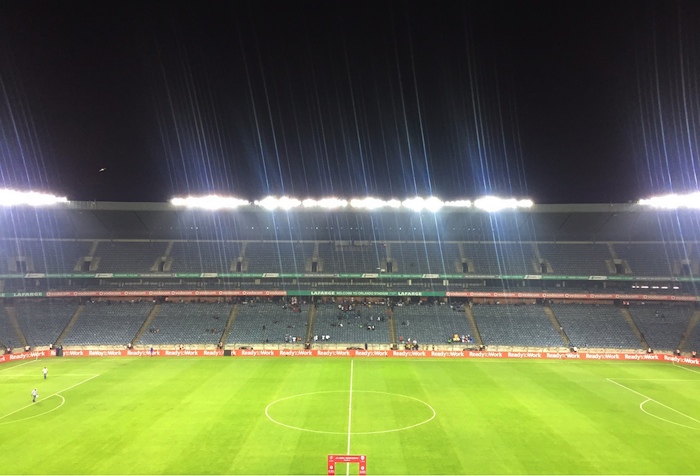
The welfare of South African football used to matter beyond its borders.
In 1974, for example, the Brazilian João Havelange won the FIFA presidency in a fiercely contested election against the conservative English incumbent, Sir Stanley Rous. He canvassed for votes in Africa, Asia and the Americas, sometimes with Pelé in tow. The businessman and former Olympic swimmer promised marginalized FIFA constituencies additional berths in the World Cup finals and greater funding for soccer development programs. Havelange also sided with African activists and the global Anti-Apartheid Movement to keep South Africa out of FIFA. Africa’s delegates reciprocated with their votes and the Brazilian supremo went on to transform FIFA into a massive global business, which he ruled with an iron fist for the next quarter century.
Since readmission to FIFA in 1992, South Africa has won two continental titles at club level and one at senior national team level. Its Premier Soccer League, according to World Soccer magazine, ranks 25th in the world (alongside Scotland). The women’s game has also grown, though significant challenges remain. The country’s successful hosting of the 2010 World Cup symbolized the great advances in South African football, particularly its organizational sophistication and financial resources.
Despite such undeniable progress, local football hardly resonates internationally anymore. In fact, many South African fans and pundits are disillusioned about the state of the domestic game.
Like almost everyone else in the early 1990s, my peers and I were fascinated by the exciting new times ushered in by the demise of apartheid. We were scrawny young boys who, like kids anywhere, lived for the game. We believed readmission into world football ignited the possibility of a future professional playing career. Things worked out differently for us.
On a recent visit to the Lebanon neighborhood of Mabopane, the township of my teenage years, it was disheartening to see how the game was no longer a central part of social life in the community in which I grew up. The dusty fields where we contested many epic duels are covered with shrubs. Those pitches that are still in playable condition are occupied by charismatic churches, which are flourishing in many poor African communities by selling salvation to people in hardship.
Grassroots football, at its best, can serve as a bulwark for a wide range of social ills that thrive where recreational resources, human and material, are scant. Any community with “redundant youth” who have lots of free time is a recipe for disaster. No wonder Mabopane and other townships on the outskirts of Pretoria are at the epicentre of the nyaope street drug epidemic ravaging South Africa today.
The grassroots game has more players and coaches than the formal game administered by the South African Football Association. Even though informal football is neither expensive to play nor to administer, it receives minimal financial investment and is wracked by insecurity and instability. This is why residents of Mabopane, like thousands of fútbol-loving South Africans, take it upon themselves to ensure the vitality of the grassroots game.
Blaming the administrators and corporate sponsors entrusted with the game’s welfare is understandable, but communities can ill-afford to delegate responsibility for social health to people and structures who do not genuinely have their interests at heart. The July 29 tragedy at FNB Stadium, which killed two fans and injured more than a dozen people in a gate crush at the Kaizer Chiefs-Orlando Pirates derby, is a case in point.
The tragedy showed how South African soccer’s leadership struggles with ensuring spectator safety at big matches while continuing to do very little for the development of the sport at the bottom of the the pyramid. Until these fundamental issues are resolved, black families will continue to worry every time their loved ones go to a football match, whether at the neighborhood sandlot or at a World Cup stadium.
Orlando Pirates: The End of an Era?
Maluti FET College 4, Orlando Pirates 1. Dropped jaws and head-scratching abounded in South Africa last weekend after a third-tier side thumped the reigning league champions in the Nedbank Cup. Stunning results like this are what makes knockout competitions hugely attractive. It’s football’s David vs. Goliath narrative: a humble amateur side from an unknown backwater of the country upstaging their well-heeled city slicker brethren. Does Pirates’ stunning defeat against Maluti signal the end of an era for the fabled Soweto team?
The Buccaneers have been enjoying a purple patch for the past two seasons. An eight-year cup drought ended in 2010/11 when Dutch coach Ruud Krol guided Pirates to a three-cup haul as they annexed the MTN 8, Nedbank Cup and the league title. Krol’s success at Pirates came only after three years of perseverance. In his first season, Pirates lost the title to Supersport United on goal difference and then narrowly lost the Telkom Knockout Cup final to Ajax Cape Town. The following season the going got harder for Krol. Pirates fared badly in the knockout competitions and finished fifth in the league.
A classy defender in his heyday, Krol turned defence into a trademark of his years at Pirates. The side conceded a miserly 22, 18, and 23 goals, but also struggled up front with 37, 26, and 41 goals per campaign. Simply not good enough. The signing of Benni McCarthy (despite his advanced age and injury-prone body) dramatically improved Pirates’ attack. But at the end of a stellar season, the formerly underachieving club did not renew Krol’s contract.
In came Julio Leal. He won two trophies, but halfway through the campaign the Brazilian was booted out, his exit apparently engineered by players unhappy with his coaching methods. Head of Development, Augusto Palacios, took over the reins, steering the Bucs to a second consecutive PSL league title and treble. There would be no continuity in 2012/13, however, as Palacios made an early exit after Pirates got knocked out of the MTN 8 and then lost badly to rivals Moroka Swallows in a league match. Roger De Sa was put in charge.
Pirates’ shocking loss to the minnows of Maluti was by all accounts a major upset. The subsequent league loss to Moroka Swallows (again!) piled even more pressure on De Sa and the Bucs. Two losses in a row, however, do not constitute a crisis. It is a bad spell, a passage any team goes through in the course of a season. Pirates remain in contention for both the league title and the African Champions League. If Pirates were to win both competitions the foibles of the past few weeks would quickly be forgotten by their devoted fans, aka The Ghost. However, if such results don’t materialize, Roger De Sa will almost inevitably become the fall guy, accused of “destroying a great side.”
Truth be told, Pirates management should shoulder the blame for any such negative outcome. De Sa seems like an astute coach and for all the experience he has gained over the years, managing Pirates is his first stern challenge. But will he be given the time to build? After all, he answers to a management team that hired him as the 35th coach in 23 years. Pirates may live to rue dissembling the successful project Krol painstakingly built over the course of three years. If De Sa “fails” then an era will have ended. Humiliating losses like the one to Maluti FET College suggest that Pirates will probably continue to hire and fire many more coaches rather than repeat Krol’s recipe for success.
Photo courtesy of Chris Bolsmann
The Big Boss Man of Nigeria’s Super Eagles, Stephen Keshi, transformed perennial underachievers of the African game into continental champions in the recent African Nations Cup in South Africa.
Keshi weeded out huge egos. He selected players based on ability, merit, and, most important, attitude. He imposed strict curfews on a team brimming with young players of limited experience drawn from Nigerian clubs rather than European ones. Thanks to his steady leadership, the Super Eagles defied the prognostications of pundits and fans alike in claiming their third African title.
Keshi knows how to win. He wore the captain’s armband in Nigeria’s previous Nations Cup triumph in 1994 against Zambia. The captain of the opposing side in that final in Tunis was Kalusha Bwalya, who played an important role in masterminding Chipolopolo’s 2012 championship run. “King Kalu,” currently Zambian Football Association president, saw to it that the nucleus of that winning Chipolopolo side stuck together for more than five years. Big Boss Keshi, on the other hand, overcame a perennial African problem by selecting a team based on what they can do, and what they are willing to do for the collective, instead of which European team they play for. In orchestrating their respective countries’ African triumphs, Bwalya and Keshi merely implemented a philosophy rarely found in most parts of African football: common sense.
The enduring lesson from Nigeria’s 2013 Nations Cup victory is that having so-called big names in your team is less than important than unity and a desire to win. As I have argued before, it is this generation of African football luminaries that must ensure that our football realizes its potential. When Keshi quit his job immediately after winning the title he cast light on the mediocrity of Nigerian football administration. (His resignation has since been withdrawn. Click here and here for more details.) The sight of South African Football Association president Kirsten Nemantandani looking bamboozled, insipid, and nervous when tasked with ceremoniously passing the CAF flag to Issa Hayatou is another reminder of why African football management should be the prerogative of competent, visionary people; not motley crews of myopic sorts whose organizations find themselves in the midst of FIFA match-fixing investigations.
Witnessing Slim Jedidi’s farcical refereeing in the Ghana-Burkina Faso semifinal, a fellow brother of mine noted: “Success in Africa is never rewarded because merit is hated. Why? Because the Big Men are there by fraud and manipulation.” Thank you to runners-up Burkina Faso and to Stephen Keshi for demonstrating how African football can soar above the deeds of those who always try to bring us backwards. May it continue in that trajectory.
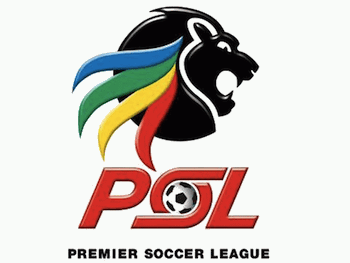 South Africa’s Premier Soccer League is back in action. For the next nine months, we are assured of the thrills, spills, and glossy mediocrity of Africa’s richest domestic championship. Things are already getting interesting. Newly promoted Chippa United fired their coach just two games into their maiden PSL campaign and Mamelodi Sundowns walloped crowd favourites Kaizer Chiefs 4-1 in the MTN 8 quarter-finals before crashing to a 2-1 home defeat against lowly Maritzburg United.
South Africa’s Premier Soccer League is back in action. For the next nine months, we are assured of the thrills, spills, and glossy mediocrity of Africa’s richest domestic championship. Things are already getting interesting. Newly promoted Chippa United fired their coach just two games into their maiden PSL campaign and Mamelodi Sundowns walloped crowd favourites Kaizer Chiefs 4-1 in the MTN 8 quarter-finals before crashing to a 2-1 home defeat against lowly Maritzburg United.
Off the pitch, the heir-apparent to the Chiefs’ throne and incumbent team manager, Bobby Motaung (whose father, Kaizer Motaung, is the founder-owner of the club) was arrested and then released on bail in relation to allegations of fraud and corruption around the construction of the Mbombela Stadium used in the 2010 World Cup. It says a lot about the state of South Africa that the son of a multi-millionaire — and a wealthy man in his own right — is one of the people under scrutiny for illegal self-enrichment from an expensive tournament that was punted to economically uplift so-called ordinary men and women on the street.
The prelude to any forthcoming football season is typified by the movement of players, coaches and even administrators to new teams. While the top clubs made the obligatory headline-grabbing plunges into the transfer market, Bidvest Wits made the boldest acquisitions. (Formerly known as Wits University, “The Clever Boys” were bought by one of the country’s biggest financial companies a few years back.) Their long-serving coach departed, a new CEO was appointed, and a number of high-profile players signed. Could these moves mark the dawn of a new era for the Johannesburg club? Or will they remain little more than a mid-table team capable of an upset or two and an occasional run in a knockout tournament?
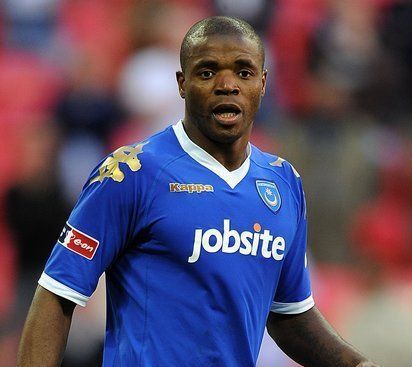 Probably the most notable new Wits recruit is former Bafana Bafana captain, Aaron “Mbazo” (“The Axe”) Mokoena. The player most likely to partner Mbazo in the centre of the defence is the man he replaced as national captain: Mbulelo “OJ” Mabizela. The progression of the two centre-backs’ careers could not be more divergent. Yet they seem to capture the different experiences and trajectories of players who emerged in the PSL, made it the Promised Land of the English Premier League, and then returned home to play out their days.
Probably the most notable new Wits recruit is former Bafana Bafana captain, Aaron “Mbazo” (“The Axe”) Mokoena. The player most likely to partner Mbazo in the centre of the defence is the man he replaced as national captain: Mbulelo “OJ” Mabizela. The progression of the two centre-backs’ careers could not be more divergent. Yet they seem to capture the different experiences and trajectories of players who emerged in the PSL, made it the Promised Land of the English Premier League, and then returned home to play out their days.
Both men were born in 1980. Mbazo was the first to make it to the professional ranks. After being discovered by the iconic manager Jomo Sono at the age of 15, he made his professional debut two years later, and soon he was in the national team. His ascension to Bafana Bafana, however, was shrouded in controversy. Caretaker coach Jomo Sono selected the unknown and unproven Mokoena for the 1998 African Nations Cup in Burkina Faso where Bafana Bafana were to defend their continental title. Jomo Sono is not only a club owner and manager, but also a player agent of note, and there were rumblings that his selection of Mbazo was largely influenced by his personal interests in the young defender. The rumblings proved to be accurate.
Gordon Igesund named Bafana Bafana coach
It’s official: Gordon Igesund is the new Bafana Bafana coach. The well-travelled Durbanite was the outright favourite for the job, and his appointment is the climax of what has been a remarkable coaching career.
Igesund’s first coaching job was in 1985 as a player-coach for Witbank Aces. For the next 11 years, he mainly coached modest teams battling to avoid relegation, sometimes unsuccessfully. In 1992 he won the NSL Second Division title with D’Alberton Callies, but his rise to prominence began in 1996-97 when he guided Durban’s Manning Rangers to the inaugural PSL title. More league honors followed at Orlando Pirates (2001-02), Santos (2001-02), and Sundowns (2006-07), which made Igesund the only coach to annex the championship with four different PSL clubs.
His appointment as the national team coach on a two-year contract comes on the back of an impressive stint at the helm of Moroka Swallows. The fabled Soweto team sent Igesund an SOS eighteen months ago when they found themselves at the bottom of the table nearly halfway through the season. Igesund masterminded The Dube Birds’ great escape, and this season they had an astonishing year, finishing an agonising second to Orlando Pirates.
It is Igesund’s heroics at Moroka Swallows that SAFA expect him to emulate with beleaguered Bafana Bafana, currently ranked 68th in FIFA’s world rankings. South Africa’s qualification bid for the 2014 World Cup in Brazil is in serious jeopardy after draws against Ethiopia and Botswana. While South Africa’s hosting of the next edition of the African Nations Cup guarantees Bafana Bafana’s participation, there is well-founded anxiety in the country over the threat of an uninspiring showing in the tournament.
“The bigger picture is the 2013 AFCON and qualifying us for Brazil 2014,”declared SAFA President, Kirsten Nematandani, at Igesund’s unveiling. It’s the same brief former Bafana coach Pitso Mosimane was given two years ago. As SAFA made abundantly clear to Igesund, should the national team fail to reach the semi-finals of the African Nations Cup next year, then he will join Mosimane on the growing list of former Bafana coaches, which now stands at eighteen.
Igesund’s pedigree gives many South Africans hope that, despite recent results, he is indeed the manager who can lead Bafana to the continental crown and to the World Cup in Brazil. He is a wily old fox who has paid his dues in the trenches. He knows how to nurture self-belief and instil a desire to win into any team under his tutelage, regardless of available talent and financial resources. We wish him good luck in his new position.
There is a problem, however, that Igesund cannot solve even if he ends up meeting his new employers’ lofty objectives. That is, SAFA’s understanding of the “bigger picture” in domestic football is confined to four-year cycles for the men’s senior national team (or in this case a two-year cycle). But local football needs sound management, serious youth development for boys and girls, better coaches’ training, and infrastructural improvements at the grassroots. In other words, the goals SAFA has set for Igesund are no more than an attempt at a quick-fix solution.
SAFA would have done better to concede their administrative shortcomings, apologize for the dismal state of football in the country, and state that Igesund is the best bet for turning hapless Bafana Bafana into a winning team. Instead, SAFA hired the country’s most decorated coach and required him to take one of the least feared teams in Africa to the semi-finals of the continent’s premier tournament and then to the World Cup. While there is no question of Igesund’s success as a club coach, it would not be surprising if, after the 2013 African Nations Cup, he were to become the 19th Bafana coach in 20 years.

By Mohlomi Maubane
The 2010 World Cup was heralded as the dawn of a new era in South African football. This new epoch was to be devoid of the old amateurish ways in the local game where officials “forget” to perform rudimentary tasks like erecting corner kick flags for an international match. But alas, as the events of the past week have shown, it’s not yet Uhuru.
A few weeks ago, the wise chaps at SAFA announced an upcoming friendly against Burkina Faso, 41st in the FIFA rankings. Problem is they seem to have forgotten to confirm this news with the intended opponents. When they did eventually contact the Burkinabe FA last week to “finalize” arrangements for the match, SAFA officials found out the West African country already had a fixture against Cape Verde on the same day. A scramble to find a “replacement” ensued. So now in preparation for a crucial AFCON qualifier against Egypt in March, on Wednesday (Feb. 9) at the Royal Bafokeng stadium outside Rustenburg Bafana Bafana will instead square up against mighty Kenya, ranked 127th by FIFA.
Speaking of the first World Cup host team to be eliminated in the first round, Bafana Bafana will soon be trading under a different name. Why? SAFA failed to register the team’s nickname. Instead, a shrewd businessman named Stanton Woodrush owns the copyright and is not playing ball, unless he is handsomely rewarded for being the first to register the Bafana name with the Department of Trade and Industry.
Simply put, SAFA are a disgraceful bunch. Despite the election of a new leadership in September 2009, the association failed to secure a training camp for Bafana Bafana in preparation for the 2010 World Cup; failed (again) to submit votes for the FIFA World Player of the Year awards; and failed to send a confirmation letter to CAF stating their intention to send the national Under 23 team to participate in the All-Africa games.
Perhaps, the overall state of the nation and its favourite pastime is best symbolized by the postponement of a Chiefs vs. Swallows game scheduled for February 5 at FNB Stadium – known as Soccer City during the World Cup – due to the theft of electric cables that left the stadium without power. Soccer City was a showpiece of South Africa’s technological sophistication and, with its calabash shell exterior, a monumental symbol of Africa’s first World Cup. The circumstances that led to a domestic league game being postponed there less than nine months after hosting the 2010 World Cup final, together with SAFA’s latest foibles, illustrate vividly how in South African football the more things change, the more they stay the same.
